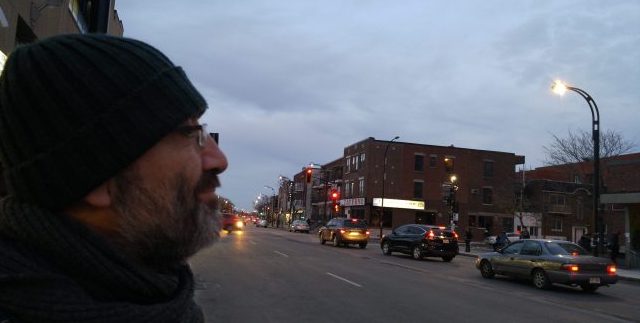When the Soviet Union collapsed, we thought that the new country that emerged from the struggle against the Soviets would protect basic human freedoms. We were mistaken.
The mid-1990s were the most brutal years for persecution. In 1995, I was the editor of a newspaper that regularly wrote articles on violence against religious groups and the conscription manhunts, when young men were gathered off the streets and taken to fight on the frontlines. In 1996, the police raided the editorial office of the opposition newspaper where I worked. I went on the run for two weeks and the police searched my mother and my wife's homes. Our office was torched around this time and I was attacked on the street a number of times. At this time, journalists who criticised the authorities would fear walking alone at night.
Gradually, the oppression of human rights activists and journalists decreased. Now gay people constitute the most vulnerable group in Armenia and those defending the rights of sexual minorities are at risk. They face threats when they undertake activities or public events, or they become the targets of the nationalist-religious media. The newspaper Iravunk, which enjoys the patronage of the authorities, published a list of names, including my own name, and instructed the public not to interact with these people, not to offer them jobs etc. We went to court to challenge this, but lost the case at every levels of the justice system.
Despite this, there is freedom of speech in Armenia. You can write and broadcast what you wish. While channels are constantly monitored by the authorities, alternative internet channels continue to launch. In fact, the authorities are so secure in their power that they are no longer afraid of free speech. They have come to understand that it is better to control the flood of mass information by launching media broadcasters with wide reach, than prohibiting the less desirable media outlets. You could even publish evidence that an official has killed someone, supporting your claims with evidence, but at the end of the day there will never be any legal consequences for the accused.
There is also another group that remains very poorly protected in Armenia, namely the poor. Thirty-three percent of the Armenian population is poor, and with no means to seek medical attention, many die as the result of illnesses that could be treated. The day after I arrived in Dublin, a childhood friend died because he could not afford treatment. Furthermore, it is not the case that the resources do not exist in Armenia to care for the health of the people, but the fact that the resources of the country, especially from the mining-industry, are in the hands of a few and the transnational corporations. Seventy percent of exports from Armenia consist of outputs from mining, while the money paid in taxes from mining consists of only three percent of the state budget. However, the locals, whose land the mining companies buy for close to nothing, do nothing to resist. Environmentalists are waging a struggle of sorts against the exploitation by the mining companies, but this reaction is not strong enough to pose a threat to the authorities. In this sense, I would be interested in learning more about the experience that Latin American countries have in this area.

It is not the case that the resources do not exist in Armenia to care for the health of the people, but the fact that the resources of the country, especially from the mining-industry, are in the hands of a few and the transnational corporations. Seventy percent of exports from Armenia consist of outputs from mining, while the money paid in taxes from mining consists of only three percent of the state budget.
